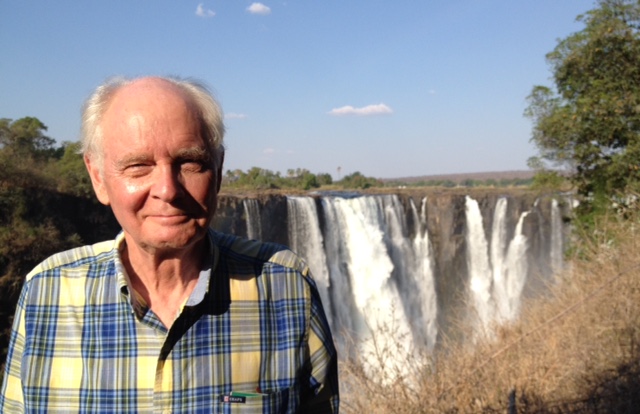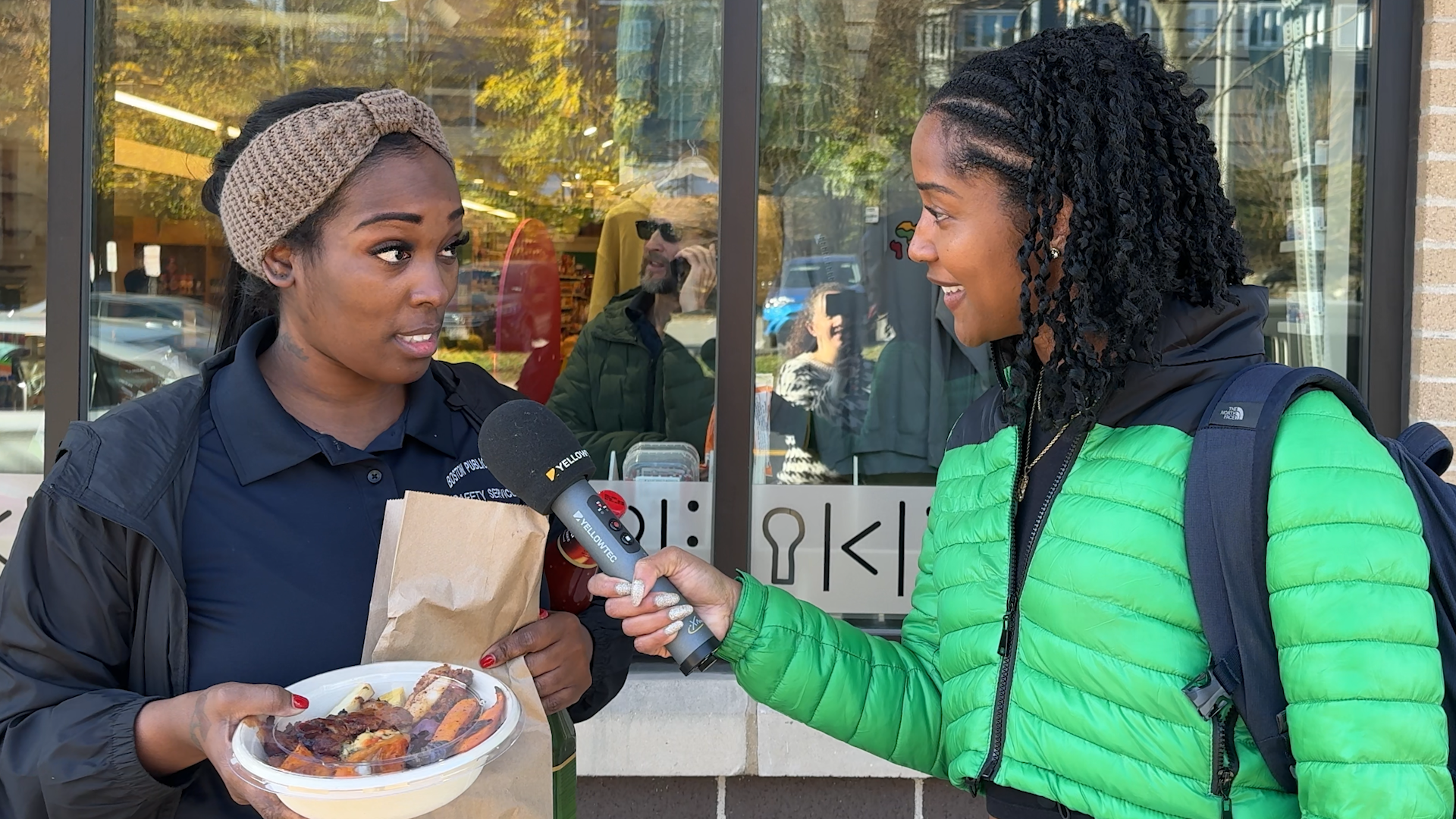‘All Funding Reconsidered’: A station staff dialogue

fizkes / iStock
In the wake of the recent House Oversight Committee’s DOGE subcommittee hearing on public broadcasting and the earlier FCC announcement of an inquiry into public media underwriting practices, there have been widespread discussions throughout the system about the future of federal funding and other challenges. Those deliberations have taken place among the G-4, at national and regional gatherings and at individual stations. As yet there are no known detailed records of the discussions at the stations. However, it is possible to surmise and even express hope about what such conversations might entail.
The following is the first of a two-part account of the imagined discussions among the senior staff in the Division of Broadcasting and Public Media at a major university joint licensee. The first account, published here, is of a meeting in early April 2025, soon after the DOGE subcommittee hearing. The second, to be published next week, was two weeks later, after the FCC inquiry that had been announced in January had begun to extend to interrogations of this and other stations.
Those attending the meetings were the Division Director and the management team — the Television and Radio Station Managers and the Associate Directors for Communications, Development, Engineering and Technology, Online Content, and Membership.
The Director: I’m glad we have this opportunity to take stock of last week’s events and circle back to our earlier discussions since January. We really do need to assess the larger political picture, and I’m interested in your further impressions about what we’re facing.
We have to deal with some other important but more routine budget, content and personnel business today, but let’s first take a little time to reflect on the recent developments.
TV Manager: Thanks for giving us some space to discuss all this. It’s been really unsettling, and frankly we’re still not at all sure where it’s headed.
The Director: Yes, I understand the concern. When we last talked about these things, the DOGE subcommittee hearing hadn’t been scheduled. Then there it suddenly was last week. I trust that everyone’s had a chance to reflect on the implications.
Radio Manager: We have, and also about the News Hour background piece the day before. I was pleased we could get more staff to sit in on both. I think we’re beginning to help clarify for everyone how serious things are now.
The Director: So, what were your thoughts?
Communications: Well, the News Hour segment was a useful, if too brief, overview of the system history and federal funding dilemma. Those facts aren’t well known or understood by the public generally, nor, I fear, even by our own people. For all of our Ken Burnsian interest in American history generally, we’re remarkably ahistorical about our own business. We’re OK at describing our immediate, day-to-day challenges, but we’re not very good at articulating the deeper institutional problems for our younger personnel, let alone for our audiences, boards and supporters.
TV Manager: As for the hearing, it was really nothing more than a show trial. As was expected, it was a setup for political posturing. Look at its very title — “Anti-American Airwaves: Holding the Heads of NPR and PBS Accountable.” There was no interest in honestly or positively exploring anything important about public media.
Online: Right, the intent seemed to be twofold — both to promote the Project 2025 argument against federal funding and CPB, and to keep stirring up culture-war issues against our so-called “radical left agenda.”
Communications: You know, it’s one thing to have to deal with the traditional old conservative opposition to public funding. We’ve been wrestling with that from the very beginning. But the difference now, or at least a new emphasis, is that we’re being cast as just another “mainstream media” boogeyman — as part of some deep state, “fake news” conspiracy against certain interests and therefore — get this — against free speech!
Online: And boy does that bit of projection drip with irony — the people trying to shut down legitimate free speech criticism are accusing a public service entity dedicated to wide-ranging content and robust free expression of somehow being an agent of repression!
Development: In any case, as to the hearing itself, our representatives probably did as well as could be hoped. We can argue over whether any concessions of prior errors should have been made, but kudos to all three of them in a nearly hopeless situation. They were never going to be given a fair shake. It was political theater, and they were there to be whipped in the interest of partisan base building.
Communications: It’s remarkable that they were able to keep their cool and hold their ground so well. Not sure how many of us could do that.
The Director: Indeed, they managed to rise to the occasion and avoid coming off as victims. I worry, though, whether our standard defenses, such as children’s programming, rural station support or providing wireless emergency services, any longer have the collective weight we need in this new-generation online era. A steady drumbeat during the hearing was the claim that the rise of new media technologies obliterates the need for a public system — all the programming and content goodies will be provided on our smartphones.
Radio: Sounds like the old free marketplace argument justifying a private-only system from the beginning. The News Hour report missed that crucial piece of the story. It goes all the way back to the original faith in the “public interest” standard to manage the expanding spectrum in the 1930s and ’50s. That “light touch” regulatory arrangement would yield wide-ranging, adequate programming in commercial radio and television — no need, therefore, for a “public service” system in the U.S.
Engineering: Now that I think about it, that same mythology prevailed later with the emergence of broadband cable in the ’80s and ’90s. The 500-channel universe would provide everything — no need for federal dollars to continue building out public radio and television. Just deregulate it all (and especially cable), and everything will be just fine.
The Director: Yes, you’ve both got it. Unfortunately, the policymakers have largely ignored those lessons. Despite the disappointments in those so-called technological “revolutions,” the political faith in the next one remains unabated. And unlike the cultural debates in most other democracies, we don’t have a rich discourse about the subtle and nuanced meanings of public service as applied in broadcasting. So, we’re going to have to be much more out there and explicit about the shortcomings in this brave new media world.
Development: OK, then, what about the commercialization issue in the hearing?
The Director: Good question. As we’ve discussed in prior meetings about the inquiry, we’re pretty vulnerable on that score. But that aspect of the hearing was not as bad as it could have been. In fact, I think the chair made a tactical mistake.
Online: Really? How so?
The Director: She was so focused on the culture wars issues that she only briefly referenced the FCC inquiry, missing an opportunity to hammer it much harder.
Radio Manager: So, then, do you think that we’re worrying too much about the underwriting problem?
The Director: No, it’s still lurking there, and it’s likely to become a bigger talking point as the attack broadens and gains momentum. As we saw with Project 2025 and the continuing Heritage Foundation support throughout the administration and in Congress, this crowd is increasingly organized against public media and a systematic attack is underway.
Communications: What, then, should our strategy be?
The Director: First, we need to understand and say out loud how the attack is part of the broader assault on the whole gamut of things they fear — education, the arts, humanities, science, diversity, civil rights and journalism. We’re not alone. I’m sure you’ve been hearing about the federal grant cuts and forced layoffs all across this very campus. The chancellor is deeply concerned about the threat not only to our university but also to all of higher education nationwide.
Online: Yes, we’re hearing it clearly from nearly every department. My spouse’s institute stands to lose two major federal grants and is already suffering staff reductions. So, what else?
The Director: Second, after decades of successfully maintaining federal funding and even increasing it slightly, we’re seeing it more seriously threatened than ever. It really could be gone in another year or two. Then add to that the possibility of tighter restrictions on underwriting and we’re facing a perfect storm of income challenge.
TV Manager: And, as you’ve suggested before, the opposition now is increasingly focused on a bigger target than the appropriations. They’re after our NCE reservations, and really the entire enterprise.
Membership: Well, at least for the short term, the word’s gone out and most of the stations seem to know what they have to do. It looks like many already have been adjusting their fundraising messaging to deal with both the FCC and House inquiries. As we decided here a few weeks ago, our own spots are now taking direct note of the threat of the federal cuts to emphasize the need for more listener and viewer support, and we’re de-emphasizing the corporate underwriting need. All over the country the federal funding situation has become a central theme of the spring pledge drives.
TV Manager: You know, I’ve agreed that that seems like a wise approach if our CSGs are going to be reduced or even eliminated and if we want to undercut the FCC commercialism case. But I’ve also been wondering if it’s an adequate strategy long-term.
Engineering: Why not?
TV Manager: Well, a little-understood strength of our funding model has been its diversity. The variety of different sources has long helped us find balance among them. Though it’s been different from station to station, look at the overall mix — federal support, the states, our own institutions, the sponsors, foundations and members. A decline in one or two tends not to be fatal and, all the better, no one of them has been so dominant as to be controlling. And, while we don’t say this openly, they also play off against one another in our general content planning.
Membership: OK, I think I see where you’re going with this. The problem is that, if we’re going to lose or see significant cutbacks in a couple of the more important funding streams, it would seem we’ll be left largely only with membership. While that source remains promising at the moment, what happens to it if the tariffs and the trade wars drive up inflation again and force us into recession? The entire world of nonprofit, membership-based arts, culture and journalism will be especially hit hard by such retrenchment.
TV Manager: Exactly. They’re flooding the zone in attacks on everything and trying to create chaos by threatening all manner of both direct and indirect disruption across the board. It’s not just about forcing the federal cuts; it’s attacking everything around the edges, too, to weaken the entire enterprise.
The Director: Sobering thoughts. Anyone have anything brighter to encourage us?
Communications: This may seem like a long shot, but there could be an upside further down the road.
Engineering: What’s that?
Communications: Well, truth be told, these last few months have raised much more awareness among the public and even our own public media community than ever before. In that sense, the hearing may have had a silver lining.
Engineering: Really? How so?
Communications: As I hinted earlier, one of my pet peeves over the years has been that we have had very little self-consciousness about our origins and the many constraining factors that have held us back. We pretty much take our structural, funding and service realities for granted; almost never examining what led to them and thinking through how to break free of the restrictions.
Development: Do you think that’s all so necessary? It seems pretty academic to me.
Communications: Here’s the problem. If we don’t understand ourselves and the deeper policy dilemmas well enough, how can we expect the public to know and help us? Our own journalism on these matters has been very weak. It’s as if we’ve decided that it’s somehow inappropriate or unethical to report more regularly and critically on the conditions that shape us. That News Hour piece was a very rare exception and really was produced only because of the hearing.
New Media: Well, wouldn’t it in fact appear to be self-serving to report too much on ourselves?
Communications: To which my response is, and as a PBS promo used to put it, “If not us, then who?” Seriously, what institution or medium is going to tell our story for us and help raise public consciousness about the principles of public service media, how they work in other societies and what our limitations have been?
Online: But would being more historically conscious be sufficient?
The Director: Let me step in here and say no — there’s in fact much more to it. Some leaders around the country have been quietly arguing that we have to be much more aggressive about our ambitions and goals. As good and as valuable as we rightly think we are, we’re too content with the status quo, and we almost never convey anything but that to the public.
TV Manager: Boy, is that right. For years now our consensus “Protect My Public Media” message has been only to help us hold the line on the appropriations. That’s all we’ve really asked of our memberships and our friends in Congress. It’s been a necessary and earnest effort, but also a pretty timid approach.
Development: Really? Isn’t that a bit unfair? We have grown and have improved our platforms and services, and we do celebrate those achievements.
The Director: Yes, to an extent that’s true. But we’ve long forgotten that the vision of many of the public media founders back in the ’60s at the time of the original federal legislation and for most of the first decade thereafter was much more expansive. The bigger thinkers were imbued with visions of the BBC, the CBC, NHK and others. They imagined for the U.S. a public service media enterprise that wasn’t just a collection of local stations as a small, marginal improvement to the private, heavily networked commercial system. They saw it as a much larger, robust, multifaceted national-local institution that would drive right into the heart of the beast, swelling in size and impact, and redefine it.
Engineering: Well, that’s certainly a tall order. But how can we justify that sort of ambition now when we’re faced with all the opposition and real cutbacks of recent years — and now these truly existential threats?
Communications: Let me speak to that — because we have no choice. The football analogy here is that with time running out, we’re behind and pinned back deep in our own territory. The only way forward is with a bold offense. We need a score.
Look, we don’t have to be Pollyannaish about it. But, if we’re ever going to convince that much larger number of subscribers we’re seeking that we’re truly worth it, we’re going to have to be much more forthcoming about where we want to go, and that goes too for our appeals to Congress, the foundations, sponsors and even future White Houses.
TV Manager: To support your point, let me put it this way and ask about my favorite fantasy. What if a group of inclined investors and foundations were to offer a $25 billion trust fund to the system? Such an endowment could double and replace the federal funding and allow us to cut back on all the quasi-commercial messaging. But here’s the catch — what if the investment were to be available only on the condition of the system producing a comprehensive long-term strategic plan? What would be the rich philosophical and material elements of that plan? What could we say with confidence about what we would do with such largesse? The truthful answer is that we don’t know. For far too long we’ve allowed ourselves to be stymied by a trained incapacity for big thinking.
The Director: Well, this discussion has certainly driven us up onto a high-level, strategic platform. Unfortunately, we’ve got to deal with some very much more mundane and routine topics this afternoon.
But I’m impressed by the out-of-the-box thinking here. I hope it’s reflective of a similar new discourse around the country. If it is, then the effort of working through and beyond the FCC investigation and the DOGE hearing may pay more dividends than we might have hoped. If it isn’t, I fear we’re in big trouble.
Willard D. (“Wick”) Rowland, Ph.D. is Dean & Professor Emeritus, School of Journalism & Mass Communications, University of Colorado Boulder, and President & CEO Emeritus, Colorado Public Television (PBS 12, KBDI), Denver.









The lesson of asymmetrical warfare, which we’ve seen in both Vietnam and Afghanistan, is that the only way for the underdog to win is to turn your perceived weaknesses into strengths and then drag out the conflict until the “big boy” finds it incapable of continuing due to internal strife. Public media is most definitely engulfed in asymmetrical warfare, and it ain’t the “big boy”.
So it’s long past time to start acknowledging something everyone…including, shamefully, NPR central…has for twenty years been screaming is a weakness, is actually a strength: the broadcast licenses.
A broadcast license does not hoover up your personal data and give it to the NSA.
A broadcast license cannot be cut off or have its content censored by a billionaire owner.
A broadcast license does not spy on your life through a device in your pocket and sell it to advertisers.
All a broadcast license does…is give you information. Pure and simple. And since a broadcast license cannot (really) tell how much you trust or don’t trust that information, by default the broadcaster must work hard to provide information that is trustworthy. Contrast that to social media…ALL OF SOCIAL MEDIA, NO EXCEPTIONS…that have proven time and time again to betray their users, invade their users’ privacy, and bombard them with spewed hatred, bile and lies that are literally driving children to kill themselves. All to make some billionaire even richer while stealing your own money out of your pocket.
It’s simple. It’s easy to understand. And it’s bound by the laws of physics to interact with its audience in a way that cannot bombard that audience with ads, or hatred, or racism, or nonstop disinformation campaigns. Public radio is better because Sir Isaac Newton says so, not because Steve Bannon, Elon Musk and Jeff Bezos claim they are.